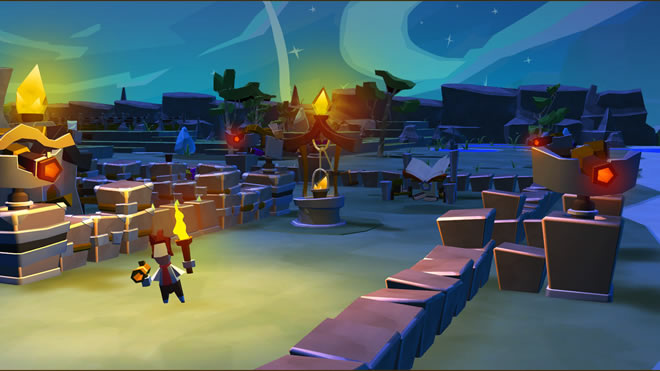
The UK town of Guildford has long been a hotbed of game development. The town has had a close knit community of developer talent ever since Les Edgar and Peter Molyneux setup Bullfrog Productions there in the 1980s. These days it’s also home to Wonderstruck Games, makers of the Turbulenz powered Polycraft – a multiplayer 3D tower defence game playable entirely in the browser. We spoke to Lead Developer Adam Langridge about the project.
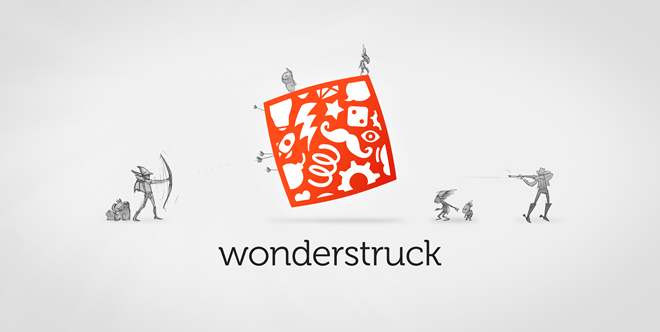
CJS: Can you tell us a little about Wonderstruck games and your relationship with Turbulenz?
WS: Wonderstruck Games is Turbulenz’s first party team. We’re a team with a lot of experience in big game development, with people from Lionhead, Sony and EA. Wonderstruck is wholly focussed on making innovative, cutting edge browser Gaming experiences.
CJS: How did the PolyCraft project come about?
WS: Polycraft combines a few passions very close to the team. We wanted to combine strategy gaming with arcade action, but also wanted to give the player a compelling, persistent world that they were invested in. Polycraft is the ambitious, happy hybrid of these ideas.
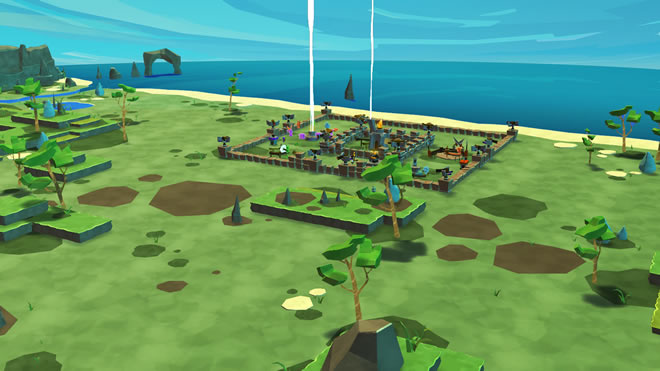
CJS: A lot of your team have a console development background. How have you adjusted to working with JavaScript in the browser?
WS: Migrating to Javascript was a very easy step from other coding languages. There was an adjustment period where we had to learn some new habits and drop a few old ones, but we were up to full speed pretty quickly.
Regarding browser development – I love it. One of the most important factors to the quality and progress of a game is how small and quick the iteration loop is – the loop between making something and seeing it work (or not) and back. When I first started in the industry, I remember waiting for compile times of more than 30 minutes! With Javascript and browser development, the time between editing the script, and seeing it in game is a matter of seconds. This means that it is much quicker to experiment, improve and tweak our code and has resulted in faster progress that I’ve experienced at any other time in my career. I hope this progress is evident in Polycraft, which has a comparable feature set and polish to games with much larger teams on other platforms. The Chrome debugger, and real time script editing is the cherry on the cake. It’s the stuff of dreams to be able to tweak and test code while the game is running.
CJS: The Turbulenz engine relies heavily on WebGL. How are you handling mobile devices?
WS: The great news is that Turbulenz’s tech already supports mobile devices that support WebGL with very little work from us to get it working. Releasing to mobile devices is a matter of us deciding which experience to focus on first, and absolutely nailing that before we adjust the experience for mobile gaming. Very often the challenge of a different platform isn’t just the hardware, but also about how well the design fits with peoples habits with that specific device – a straight port may not do the project justice.
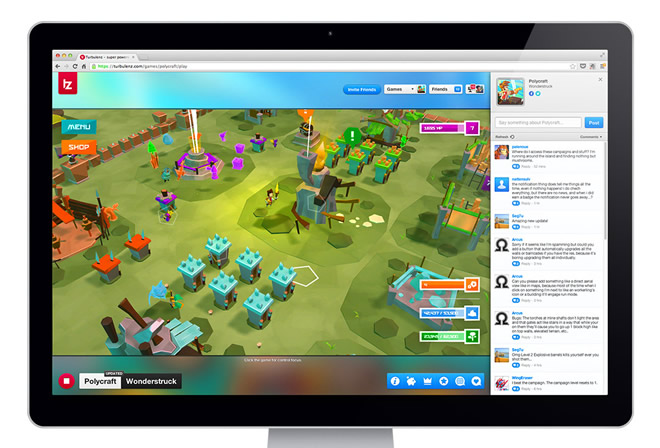
CJS: In April the Turbulenz engine transitioned to Typescript and became open source. Has this any impact on development?
WS: For any game developer, open sourcing code is very liberating. You have the ability to pick and choose what aspects of the code you want to use, and are able to modify it in any way you see fit for your game. As we were already fully on board with Turbulenz’s technology, the transition was very smooth. It’s great being able to build upon libraries that continue to grow and improve.
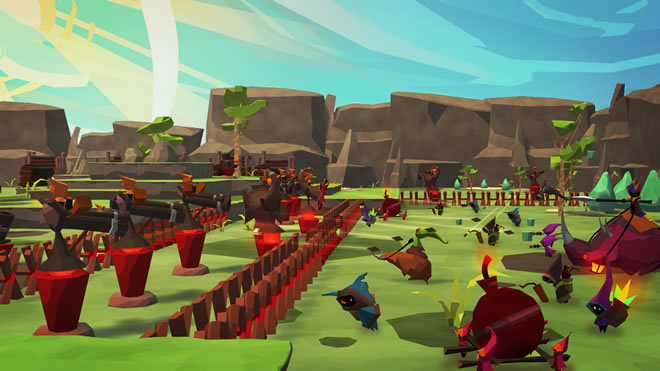
CJS: What do you have planned for PolyCraft now it has left private beta?
WS: We’ve some big plans. Due to the influx of players, we’ve discovered areas that we want to work on even more, and the fans are a really amazing driving force for this. They’re great. What’s been really special for me as a developer has been the comments feed that sits beside the game on the Turbulenz Game Site. We all read the feed daily, which contains crazy suggestions, words of appreciation as well as complaints and this really informs us on what to focus on. We’re still discussing some of the larger features, but we’d love to make the game even more social, and to give your islander the appreciation he (or she) deserves.
